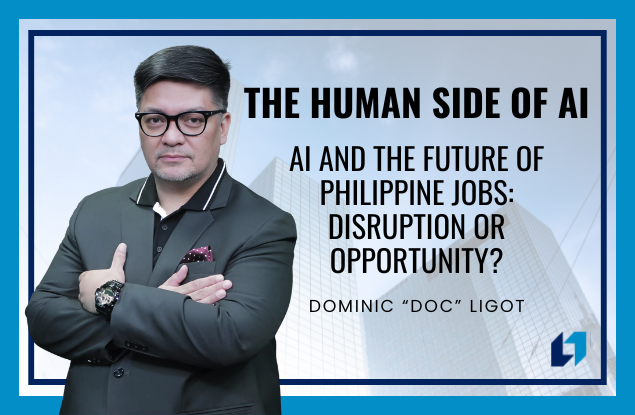Artificial intelligence is no longer a niche technology. With the rise of General Purpose AI (GPAI)… systems capable of handling a wide range of tasks… the world of work is undergoing a fundamental shift. Large Language Models such as ChatGPT and Claude, paired with image generators like Midjourney and Stable Diffusion, are evolving from tools into semi-autonomous agents, executing workflows with minimal human input.
Unlike “narrow AI,” which is built for specific tasks, GPAI is adaptable across industries. This versatility is reshaping business models everywhere, but nowhere is the impact more critical than in the Philippines, where outsourcing and IT-business process management (IT-BPM) have long underpinned the economy.
The Numbers Behind the Shift
At the International IT-BPM Summit, IBPAP president Jack Madrid highlighted how AI is already disrupting the sector. About 8% of firms reported workforce reductions linked to AI adoption, while 13% saw headcount growth. More tellingly, nearly half of member companies indicated that roles are shifting and upskilling is essential.
This mix of contraction and expansion captures the dilemma: automation will undoubtedly replace certain tasks, yet it simultaneously opens new avenues for higher-value work. For investors, policymakers, and business leaders, the key lies in determining whether the Philippines adapts quickly enough to capture the upside.
Education, Skills, and the Adaptability Gap
The foundation of this adaptation must be talent. Traditional education models… slow to update curricula and rigid in structure… cannot keep pace with AI’s evolution. What is required is a lifelong learning ecosystem that emphasizes adaptability, critical thinking, and creativity alongside technical literacy.
Unfortunately, many retraining initiatives remain too narrow, equipping workers for immediate needs but failing to prepare them for long-term shifts. Worse, access is uneven. Urban centers benefit from resources and funding, while rural areas risk being left behind. Without targeted investment in inclusive training, the digital divide will widen, limiting both social mobility and economic resilience.
Rethinking Credentials and Industry Alignment
Another pressing issue is credentialing. Employers are increasingly prioritizing micro-credentials and AI-verified certifications over traditional degrees. The Philippine Skills Framework (PSF) is a step forward, aligning educational outputs with industry requirements. But unless these pathways are made accessible and inclusive, they could inadvertently exclude large segments of the workforce.
The Policy Imperative
For the Philippines, policy choices will determine whether GPAI becomes a threat or a catalyst. Safeguards for displaced workers, incentives for responsible AI adoption, and regulations that evolve alongside technology are critical. Policymakers must balance protecting livelihoods with fostering innovation.
One strategic option is “sovereign AI”… locally developed systems tailored to national needs. Investing here could strengthen industries, secure data privacy, and reduce reliance on foreign platforms. Done right, sovereign AI could position the Philippines as a leader in regional innovation rather than a passive adopter.
The Bottom Line
The jobs question is not whether AI will transform the workforce… it already is. The question is how the Philippines responds. With decisive action, cross-sector collaboration, and a commitment to inclusive growth, GPAI could drive a new era of prosperity.
The future is being written now. Whether it brings disruption or shared opportunity depends on the choices we make today.
Dominic “Doc” Ligot is one of the leading voices in AI in the Philippines. Doc has been extensively cited in local and global media outlets including The Economist, South China Morning Post, Washington Post, and Agence France Presse. His award-winning work has been recognized and published by prestigious organizations such as NASA, Data.org, Digital Public Goods Alliance, the Group on Earth Observations (GEO), the United Nations Development Programme (UNDP), the World Health Organization (WHO), and UNICEF.
If you need guidance or training in maximizing AI for your career or business, reach out to Doc via https://docligot.com.
![]()



